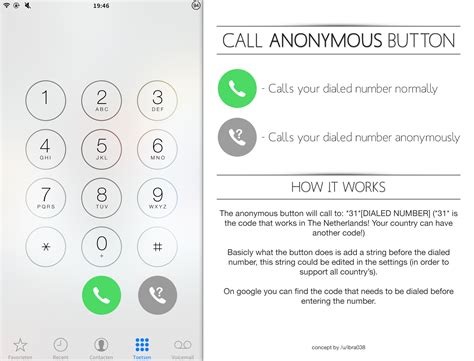How to Dial Anonymously: A Guide to Protecting Your Privacy
Making anonymous calls might seem like something from a spy movie, but there are legitimate reasons why you might need to conceal your phone number. Whether you're protecting your identity from potential harassment, conducting market research, or simply want added privacy when making certain calls, understanding how to dial anonymously is crucial. This guide will walk you through various methods, highlighting their pros and cons, and offering tips for responsible usage.
Understanding Anonymous Calls and Their Implications
Before we dive into the methods, it's important to understand the legal and ethical considerations. While anonymity offers privacy, it's crucial to use it responsibly. Making anonymous calls for illegal activities is strictly prohibited and can lead to serious consequences. This guide focuses on legal and ethical uses of anonymous calling.
Important Note: The legality and effectiveness of anonymous calling methods vary depending on your location and the service provider. Always check your local laws and regulations.
Methods for Making Anonymous Calls
There are several ways to make calls while concealing your phone number, each with its own advantages and disadvantages:
1. Using *67 (or similar codes):
Many regions use a prefix code like *67 before dialing a number. This temporarily blocks your caller ID.
- Pros: Simple, readily available, and often included with your phone plan.
- Cons: Effectiveness varies; some call recipients may still see your number through caller ID spoofing detection. It's only temporary; your number will be displayed on subsequent calls.
How to use it: Dial *67 [phone number]#.
2. Utilizing Apps and Services:
Several apps and online services offer anonymous calling features. These often mask your number through various techniques.
- Pros: Often provide more robust anonymity than simple prefix codes. Some offer additional privacy features.
- Cons: May involve subscription fees. The reliability of anonymity depends on the app's security measures.
Finding Suitable Apps: Research different apps and read reviews carefully before choosing one. Pay attention to user privacy policies and security protocols.
3. Using a VoIP Service:
Voice over Internet Protocol (VoIP) services allow you to make calls over the internet using your computer or a dedicated app. Many VoIP providers offer anonymous calling options.
- Pros: Can provide a higher level of anonymity than other methods. Often offers more control over call settings and features.
- Cons: Requires an internet connection. Might require setting up an account and potentially subscribing to a paid plan.
4. Burner Phones (Prepaid Phones):
Purchasing a prepaid phone is another way to make calls anonymously. These phones don't require a contract or personal information beyond what's needed for purchase.
- Pros: Offers a high degree of anonymity. You can simply discard the phone after use.
- Cons: Involves an upfront cost. Less convenient than other options for regular use.
Tips for Responsible Anonymous Calling
- Be mindful of the law: Ensure your actions are legal and ethical.
- Respect the recipient's privacy: Avoid using anonymity to harass or intimidate others.
- Choose reputable services: If using apps or VoIP, opt for established providers with strong security measures.
- Protect your own privacy: Be aware that even anonymous calling methods aren't foolproof, and certain agencies might still be able to trace your call.
Conclusion
Making anonymous calls offers a level of privacy that can be beneficial in various situations. However, always remember that responsible use is crucial. By carefully weighing the pros and cons of each method and understanding the legal and ethical implications, you can utilize anonymous calling effectively while protecting your identity. Remember to always prioritize ethical and legal considerations.
